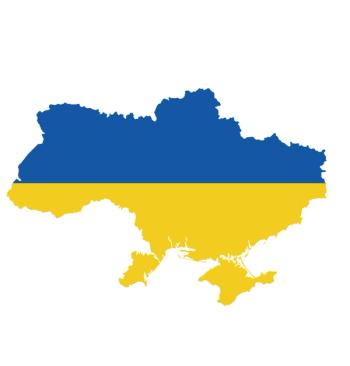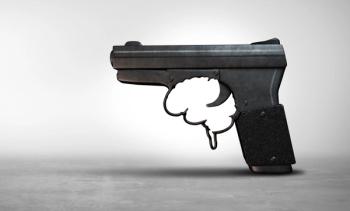
- Vol 38, Issue 9
Reflecting on Trauma
The long trail of posttraumatic pain and suffering leaves behind too many people whose lives will never be the same...
FROM THE EDITOR
I never met my paternal grandfather. We share the same name, hair pattern, and interests, and I am told we have similar personality characteristics. He died, aged 56 years, from small cell lung carcinoma before I was born. I treasure the stories shared by my father about him, as well as his diary from his tour of France and Germany in
My grandfather had volunteered to go to the European front as long as he did not have to kill anyone, and so he served on the front lines as a medic in the American Expeditionary Forces, Third Division. He experienced the brutal trench warfare we have all seen dramatized in movies. My grandfather was gassed by the Germans on several occasions, and he returned home with no hair on his body. The secondhand stories shared by my father included horrific wartime events typical of WWI.
I reread my grandfather’s diary as I began writing this editorial, and I was particularly struck by his entry on September 11, 1918. Previously I had never noticed the date.
“At 1 AM the great drive opened up. A heavy barrage was thrown up. Some jamey believe me. The flashes were seen very clearly. Barrage kept up till mid-day. Big naval guns, booming near here jarring doors open and rattling things in general. We were all kind of nervous at first but this gradually wore off. Patients began coming in and we were rushed to death, working day and night. Stories came from the front of different attacks. Lots of gassed. We gave our beds up to patients and slept on ground.”
Juxtaposed with my grandfather’s entry, the following is from my grandmother’s diary, written shortly after my grandfather had returned home from the war.
“Ah! If I could only make you see my darling when he came home to me. The lovely generous body, fit and solid, the same ruddy complexion (the army called him ruddy) and those beautiful blue clear eyes but for all that –The boy who went away was so calm, sunny and sure that everything nice was just around the next corner and the man who came home to me –uncertain, afraid of a sudden noise and timid of the dark in a building. So many days under fire without relief and exposure had left their tragic mark.”
September 11, 2021 will mark the
Watching with confusion, helplessness, and disbelief, that horror was greatly amplified as both the World Trade Center buildings collapsed. As I reflect on
Sadly, this day of gruesome attacks, as well as all the pain and suffering they have caused, is but one of countless traumatic events that have been perpetrated on humanity over millennia: some by nature, others by accident, but many by people intentionally inflicting death, pain, suffering, and unimaginable loss on other people. During the brief history of our own country, we have already had our share: the Civil War, World War I and II, the Korean, Vietnam, and Gulf wars, and the Capitol insurrection on January 6, 2021, to name a few.
Some traumatic events occur over decades, affecting specific populations. During the colonization of North and South America by different European countries, the indigenous populations were unapologetically nearly exterminated through genocide. As the United States grew as an economic power after obtaining its independence from Great Britain, Africans were captured in their native lands, enslaved without individual rights, and transported in squalid conditions to become the property of landowners and others. What followed were centuries of forced labor, separation of families, torture of the worse kind, and murder without consequence. During World War II, Japanese Americans were taken from their established lives and homes and incarcerated in internment camps, while their family members or friends fought proudly as Americans overseas.
Natural
Finally, each of us is influenced by traumas of many types, experienced by our families from generations past—family narratives that shape us in many ways, some of which we are aware, and others hidden. I would like to share one of my family narratives as I end this editorial.
My father shared with me how his father suffered from panic attacks, agoraphobia, and anxiety after his wartime service. He worked close to home at the United Shoe Machine Corporation in Beverly, Massachusetts, designing machines to make shoes. When his anxiety intruded, his supervisors allowed him to leave work and walk home to find respite and relief. My grandmother referred to herself as a “cellar widow,” as my grandfather would arrive home from work, have his evening meal, and then go down to his workshop in the basement where he found relief working on an endless trove of projects. There is no doubt that my grandfather’s trauma from WWI has had an impact on me.
Many of the traumas described are out of our control, a result of random natural occurrences or unfortunate accidents. War and murder, however, result from choices made by an individual or a government. I often reflect on a talk given during a meditation retreat by my friend, colleague, and meditation teacher Joseph Goldstein, who lives and teaches at the Insight Meditation Society in Barre, Massachusetts.
He said: “Imagine what the world would be like if every person agreed to not kill any other person.”
Imagine . . .
Dr Miller is medical director, Brain Health, Exeter, New Hampshire; Editor in Chief, Psychiatric TimesTM; staff psychiatrist, Seacoast Mental Health Center, Exeter; Consulting Psychiatrist, Exeter Hospital, Exeter; Consulting Psychiatrist, Insight Meditation Society, Barre, Massachusetts. ❒
Articles in this issue
over 4 years ago
What Do I Do Now? Making Decisions in a Postpandemic Worldover 4 years ago
A Generation in Crisis?over 4 years ago
Treating Mania in Older Adults With Bipolar Disorderover 4 years ago
Inclusivity: Ensuring Patients Who Are Plus-Size Feel Welcomeover 4 years ago
Art Imitating Life: A Poet’s Wordsover 4 years ago
Fraternity Paddleover 4 years ago
Harnessing Harm-Reduction Methods to Combat the Opioid CrisisNewsletter
Receive trusted psychiatric news, expert analysis, and clinical insights — subscribe today to support your practice and your patients.







